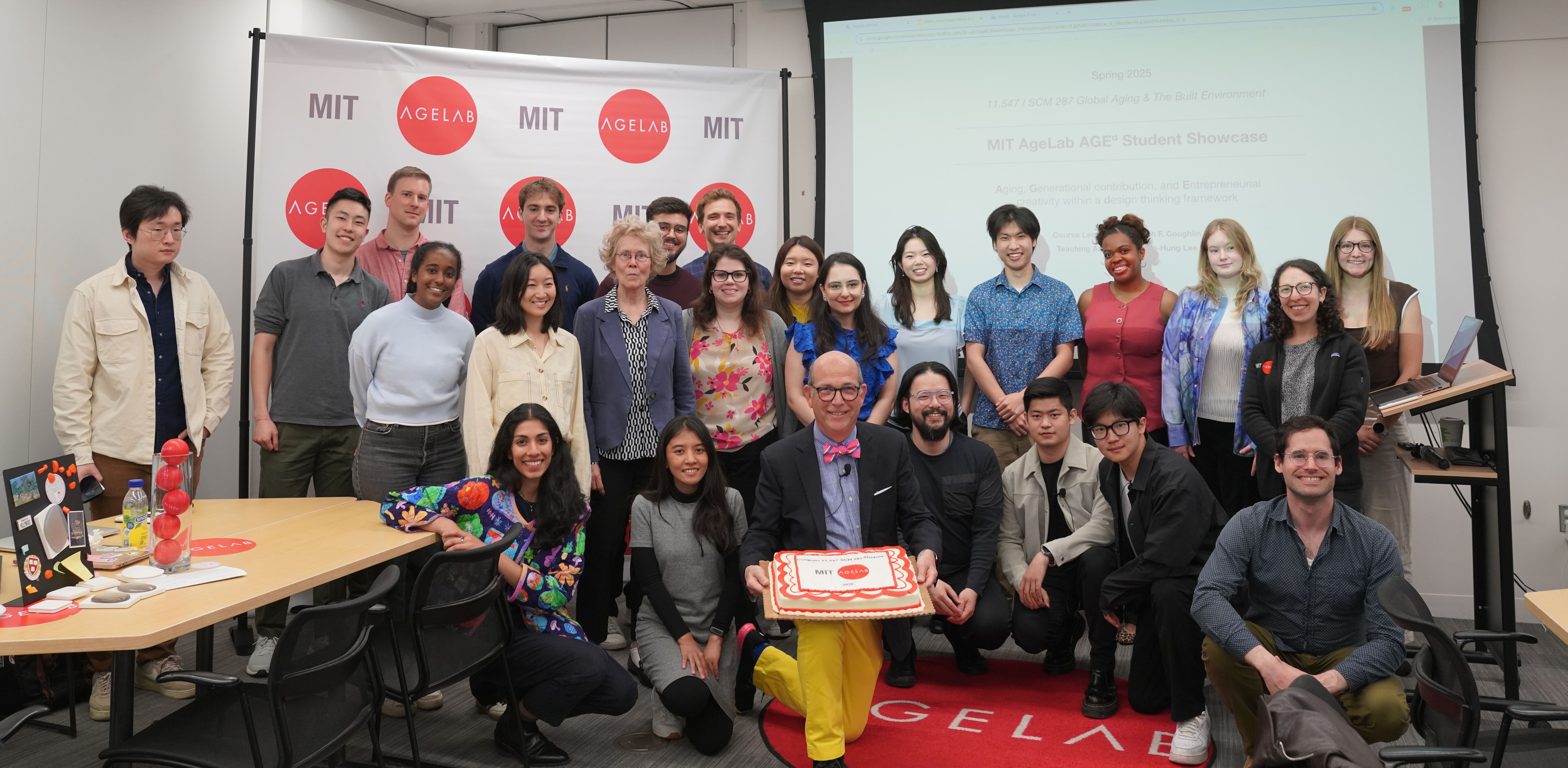AgeLab Hosts Student Showcase for "Global Aging" Course to Close Out Spring Semester
by Niels Wu
Students in Joe Coughlin and Sheng-Hung Lee’s Global Aging and the Built Environment Course showcased their final projects in an event hosted by the MIT AgeLab. The course considers city planning, transportation, housing, technology, and other aspects of the built environment and their impact on the health, wellness, and inclusion of an aging population. The showcase highlighted six student teams’ design solutions to address aging-related challenges:
Playback is an AI-powered storytelling and music discovery platform that uses the power of nostalgia to connect older adults with their memories and communities. Designed to combat isolation and preserve cultural identity, Playback encourages sharing music-related memories with family and peers through a multimedia interface. David Anorim, Aanchal Chopra, Malcolm Grba, and Shivangi Varma, all graduate students at Harvard University, presented this project.
An Ambassador Program for Boston’s MBTA Green Line addresses physical and emotional barriers to public transit for older adults. The program proposal includes accessibility-enhanced train cars and support staff— “ambassadors”—who assist with navigation and physical tasks like carrying groceries. Pilot programs would begin at stations with high senior ridership or those with accessibility challenges. MIT graduate students Erin Chen, Kerry Mills, Haley Miller, and Aulia Kurniaputri, and Harvard graduate student Kathy Desmond, were the presenters for this project.
Happy Journey Care Home is a modular option for senior living consisting of small-scale assisted living facilities retrofitted into suburban neighborhoods. This model combines scalable operations with personalized care, allowing for a flexible and community-based care infrastructure. The proposed pilot site features ADA-compliant structures and vibrant social spaces like galleries and courtyards. William Du and Kaicheng Zhuang, both MIT graduate students, presented this project.
LUMI, a smart fridge magnet and phone app, supports healthy eating habits for older adults through gentle nudges and reminders. Designed to facilitate behavior change over time, LUMI translates medical advice into realistic and achievable routines with food, allowing older adults to manage their health without feeling monitored by family members or caregivers. Harvard graduate students Isabelle Lee, Gene Pozas, and Jaylyn Senise were the presenters for this project.
The Conversation Canopy is a card game that facilitates meaningful conversations between generations using prompt-based cards on topics that can be considered personal or sensitive such as family history, generational differences, or one’s desired legacy. The game is grounded in theories of emotional safety and narrative communication and guides players in expressing emotions and vulnerability in a way that might be unfamiliar to them. MIT graduate students Joy Liu and Benjamin Zheng presented this project.
Lastly, a detailed survey and planning tool to guide urban design and autonomous vehicle development seeks to close the gap between the capabilities of autonomous ride-hailing vehicles and actual curb access. Insights from the survey could help cities and service providers improve rider experience, especially for older adults, by designing better pickup and drop-off zones or AV features. MIT graduate student Chenhao Zhu was the presenter for this project.
The showcase revealed the potential for design-based thinking to make aging safer, more connected, and more dignified. Congratulations, students!

